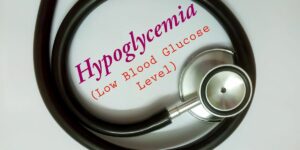Hypoglycemia is a condition that can affect individuals with diabetes, posing a significant health risk if not properly managed. Severe hypoglycemia, in particular, is a critical state where blood sugar levels drop dangerously low, requiring immediate medical attention. This comprehensive guide aims to enlighten readers about the effective severe hypoglycemia treatment options. Understanding how to recognize and respond to this condition is crucial for those living with diabetes, as well as their caregivers and loved ones.
Contents
What Are The Symptoms Of Severe Hypoglycemia?
 Severe hypoglycemia is a serious condition that can occur in people with diabetes, especially those who use insulin or certain other diabetes medications. Recognizing the symptoms of severe hypoglycemia is crucial for prompt and effective treatment. Here are the key symptoms to be aware of:
Severe hypoglycemia is a serious condition that can occur in people with diabetes, especially those who use insulin or certain other diabetes medications. Recognizing the symptoms of severe hypoglycemia is crucial for prompt and effective treatment. Here are the key symptoms to be aware of:
- Confusion and Disorientation: Individuals may experience significant confusion or disorientation. They may be unable to think clearly or perform routine tasks.
- Loss of Consciousness or Seizures: Severe hypoglycemia can lead to loss of consciousness, seizures, or convulsions. This is a medical emergency, and immediate medical assistance is required.
- Extreme Weakness or Fatigue: Profound weakness or exhaustion can occur. And, making it difficult for the person to stand or move.
- Coordination Problems: Difficulty in coordination, including clumsiness or trouble walking, can be a sign of severe hypoglycemia.
- Unusual Behavior or Mood Swings: Individuals might exhibit behavior that is out of character, such as aggression or appearing intoxicated. Mood swings and irritability are also common.
- Visual Disturbances: Blurred vision or double vision can occur, impacting the person’s ability to see properly.
- Tingling or Numbness: Some people experience tingling or numbness in their lips or tongue.
- Rapid Heartbeat: A fast or pounding heartbeat, which can also be accompanied by palpitations, is a common symptom.
- Sweating or Clamminess: Despite having low blood sugar, individuals might sweat profusely or have clammy skin.
- Hunger: An intense feeling of hunger is often reported, even if the person has eaten recently.
- Difficulty in Speaking: Slurred speech or difficulty in articulating words can be a sign of severe hypoglycemia.
- Pale Skin: The person’s skin may appear paler than usual.
It’s important to note that symptoms can vary from person to person. Thus, some individuals, especially those who have had diabetes for a long time or have frequent episodes of hypoglycemia, may experience hypoglycemia unawareness. This is a condition where the usual symptoms of hypoglycemia are no longer felt, making it harder to recognize and treat low blood sugar promptly.
What Is The Immediate Treatment For Severe Hypoglycemia?
 Immediate severe hypoglycemia treatment, particularly in individuals with diabetes, is critical to prevent serious complications. The treatment protocol generally involves the following steps:
Immediate severe hypoglycemia treatment, particularly in individuals with diabetes, is critical to prevent serious complications. The treatment protocol generally involves the following steps:
- Administer a Fast-Acting Sugar Source
If the person is conscious and able to swallow, give them a fast-acting source of sugar. This could be glucose tablets, gel, juice, regular soda (not diet), or candy. The recommended amount is usually around 15 grams of carbohydrates.
- Recheck Blood Sugar Levels
After 15 minutes, recheck the person’s blood sugar levels. If it remains low (below 70 mg/dL or the target range set by the healthcare provider), administer another 15 grams of carbohydrates.
- Follow Up with Complex Carbohydrates
Once blood sugar levels return to normal, it’s advisable to have a snack or meal that includes complex carbohydrates and protein to help stabilize blood sugar levels and prevent another drop.
- Use of Glucagon
In cases where the individual is unconscious or unable to swallow, a glucagon injection is the next step. Glucagon is a hormone that raises blood sugar levels quickly. Caregivers, family members, and close associates should be trained on how to administer glucagon. Injectable glucagon kits are available, and more recently, a nasal spray form of glucagon has become available for ease of use.
- Regular Monitoring
Regular monitoring of blood sugar levels is key in managing diabetes and preventing episodes of severe hypoglycemia.
It’s important for anyone with diabetes, especially those on insulin therapy or certain oral diabetes medications, to understand these steps and be prepared to act quickly in the event of severe hypoglycemia. Regular consultation with a healthcare provider is essential to ensure that the management plan for diabetes is appropriate and effective.
How Do Hospitals Treat Severe Hypoglycemia?
 When severe hypoglycemia is treated in a hospital setting, the approach typically involves more intensive and monitored care, especially if the patient is unconscious, unresponsive, or if initial treatments have failed to raise blood sugar levels adequately. Here’s how hospitals generally manage severe hypoglycemia:
When severe hypoglycemia is treated in a hospital setting, the approach typically involves more intensive and monitored care, especially if the patient is unconscious, unresponsive, or if initial treatments have failed to raise blood sugar levels adequately. Here’s how hospitals generally manage severe hypoglycemia:
Intravenous (IV) Glucose Administration
- Upon admission, if the patient is unconscious or oral glucose is ineffective, medical staff quickly establish an IV line.
- Dextrose, a form of glucose, is administered directly into the bloodstream. This method allows for rapid elevation of blood sugar levels.
- The concentration of dextrose (e.g., D10W – 10% dextrose in water) is selected based on the severity of hypoglycemia and patient needs.
- Blood sugar levels are frequently monitored to ensure they return to a safe range and to adjust the dextrose infusion rate as needed.
Continuous Monitoring
- Continuous monitoring includes regular blood glucose checks, often every 15 to 30 minutes initially, to observe how the patient responds to treatment.
- Vital signs such as heart rate, blood pressure, and oxygen saturation are monitored for signs of stress or other complications.
- Electrocardiogram (ECG) monitoring might be used in patients with cardiovascular risk.
Adjusting Diabetes Medications
- A review of the patient’s current diabetes medications is conducted to identify if they contributed to the hypoglycemic event.
- Adjustments might include changing the type, dose, or timing of insulin or other diabetes medications.
- The goal is to optimize the patient’s diabetes management to prevent recurrence of severe hypoglycemia.
Treatment of Underlying Causes
- If hypoglycemia is due to factors other than medication, such as an insulin-producing tumor (insulinoma) or liver or kidney dysfunction, these conditions are addressed.
- Additional tests and investigations may be performed to identify and treat these underlying causes.
Nutrition Consultation
- A dietitian may assess the patient’s dietary habits to ensure they align with effective diabetes management.
- Guidance is provided on meal planning, balancing carbohydrates, protein, and fats, and understanding the impact of food on blood sugarlevels.
- Recommendations for timing of meals and snacks to prevent hypoglycemia, especially post-discharge, are often provided.
Education and Planning
- Education covers recognizing early signs of hypoglycemia, proper use of blood glucose monitoring devices, and how to adjust food and medications in special circumstances.
- Training on the use of glucagon for emergencies is provided to the patient and family members.
- A plan for what to do in case of future hypoglycemic episodes is developed and discussed.
Follow-Up Care
- The hospital arranges follow-up appointments with a primary care doctor or endocrinologist to ensure ongoing management.
- This follow-up is critical for assessing the effectiveness of any changes made to the treatment plan and for ongoing education and support.
Assessment of Mental Status
- Due to the risk of hypoglycemia affecting brain function, healthcare providers may conduct neurological assessments.
- These assessments check for any signs of confusion, memory loss, or other cognitive impairments that might have resulted from the hypoglycemic episode.
- Appropriate interventions and support services are provided if any cognitive issues are detected.
Overall, hospital treatment of severe hypoglycemia is multifaceted, focusing on the immediate correction of blood glucose levels. Also on comprehensive management of the patient’s diabetes, education for future prevention, and addressing any underlying conditions or complications.
Conclusion
In conclusion, severe hypoglycemia treatment is crucial, especially for those living with diabetes. This condition, characterized by dangerously low blood sugar levels, can lead to serious symptoms like confusion, unconsciousness, and seizures. Immediate treatment typically involves quick-acting carbohydrates and, in severe cases, the use of glucagon or emergency medical care.
It’s important for individuals with diabetes, their caregivers, and loved ones to recognize the signs of hypoglycemia and know how to respond effectively. Remember, knowledge and preparedness can make a significant difference in handling this critical condition. Do you want to get rid of diabetes? Join our online diabetes treatment program and reverse Diabetes naturally through lifestyle changes such as a Personalized Diet plan, Exercise, Yoga, dieticians, and health coaches.

